- Home
- Lynne Connolly
Devonshire: Richard and Rose, Book 2 Page 14
Devonshire: Richard and Rose, Book 2 Read online
Page 14
I smiled at him, the memory fresh in my mind. “I don’t know what I would have done without those days if I hadn’t escaped from time to time.”
Tom took my hand and we stood together while we remembered our childhood and enjoyed the fine day, looking out at the blue sea and the sandy beach far below us. That I could behave with such freedom in front of my future husband only seemed to emphasise the trust we had in each other. Richard let us dream for a few moments and then said, “Well, I’m sorry to interrupt the reverie, but we should get back to the others, don’t you think?”
We climbed back the easy way, at the far end of the ledge where it sloped gradually up to the cliff, but before we made the final ascent, Richard caught my arm and pulled me back. “Local lovers, eh?” he murmured, lips against mine before he let me go with a teasing smile. Tom had discreetly left us, but he must have seen me in Richard’s arms before he went to join the others.
Lizzie, Georgiana and Gervase had tired of waiting for us, and unpacked the food that Martha had provided. Gervase had found one of the roasted chickens, and he was tucking into a leg with evident relish as we approached them. They had tethered the horses to some trees, a little way off. Gervase had found a separate place for Nighthawk. He stood contentedly cropping the grass, waiting until Gervase should be ready for him again.
Ever careful for the welfare of her guests, Martha had provided us with a much richer repast than Tom and I had managed to filch from the kitchens in the old days, and there were cloths we could use to sit on, to protect us from the damp grass. Martha used to despair at the number of times I arrived home with grass stains on my skirts, but somehow, even in his country clothes and relaxed mood, I couldn’t imagine Richard ever doing such a thing. I said something to that effect and was surprised when Gervase laughed at me.
“Comes of seeing the finished product only, ma’am,” he chortled. “My brother got through more pairs of breeches in a week than you could ever imagine. Two pairs a day sometimes, as I recall. He could lose himself in the grounds like nobody else; even the gamekeepers didn’t know the places he discovered.”
Richard grinned at his brother. “As if you didn’t come with me.”
We all laughed, remembering what we had been, and what we had become or would become.
We stayed there as long as we could, but all too soon, we realised if we didn’t return we would be late for dinner, so we remounted and set off, away from the coast. The sky was more overcast now, but the exertion kept us warm.
We had just entered the squire’s land when we saw something on the grass ahead. As we got closer it looked less like a fallen branch I’d thought it at first and more like a bundle of rags. With a sickening, sinking feeling, I realised what it must be.
Richard and Tom must have realised in the same moment, for they both kicked up their steeds to get there before us. They had dismounted by the time we arrived at the scene, and were bending over the figure, looking for signs of life. Richard found an arm and felt for a pulse in the wrist, but then Tom uncovered the man’s head and breast, and we saw why he wouldn’t find one.
Ugly welts marred all the bare flesh visible. The man had been stripped and beaten, no thoughts of punishment here, only murder. I stared at the welts, raised and red, and the blue bruise marks, which told me the man had been beaten for some time before he died. The back of his head was one large crater, leaving only a bloody, sticky mess of crushed bone and hair. Richard closed the staring eyes with a gentle hand.
At the first sign of what this was, Gervase took Lizzie and Georgiana well away from the scene. I was deeply grateful for his prompt action. Lizzie never went to visit the sick, her squeamishness more trouble than it was worth. While I was sympathetic, it was the last thing we needed here. In contrast to Lizzie’s distress, I had discovered I gained satisfaction from helping with such injuries as they came my way. I liked to have the ability to help rather than to stand helplessly by.
However, I could do nothing here, other than go and fetch a cloth from my saddlebag, and throw it to them to wipe the mess from their hands. My horse skittered again when she got the scent of blood, and I was forced to move her upwind.
Richard waited until I had settled my mare once more and left her with the others, now waiting some distance away, and returned to him. “We came here the same way, didn’t we? So he wasn’t here earlier.”
“No, my lord,” Tom agreed, his face white with shock. He leant back on his haunches and stared at the man wide eyed as though he wanted to take in every part of his appearance, never forget what he looked like.
Richard observed his reaction. “You know him?”
“H—He’s one of our servants, a gamekeeper,” Tom stammered. “I’ve known him since I was a boy.”
Richard looked sharply at him, and then he searched in his coat pocket and found his flask. He handed it to Tom without a word. The younger man took it, unscrewed the top, and drank deeply from the contents. Richard pulled up the rags they had tossed aside and recovered the man’s body. He stared down at the unedifying scene. “All right?”
I nodded. “I’m fine. His name was Fursey. He was a good man. He has—had—a wife and children in one of the cottages on the estate.” I felt the spring breeze ruffle the hair on my neck and I shivered. Fursey would never feel cold or spring breezes again. I groped in my pocket for my handkerchief. Tears sprang to my eyes unbidden when I thought about this man and what someone had done to him.
Richard lifted his arms to hold me. This time he was careless of who saw us. He wanted to comfort me, and I needed to be comforted.
“I’m all right,” I said into the warm folds of his coat. “It was the shock, that’s all.”
He tilted my face up and studied me. “I know.” He let me go and went to Tom, to take his flask back. He shook it to see how much was left, then returned and gave it to me. “Just a little.”
I lifted the flask and obediently drank some of the brandy, which burned a fiery trail down my throat. He stoppered the flask and put it back into his pocket, keeping his eyes on me, seemingly satisfied when I managed a wan smile. He looked back at Tom where he sat on the ground. No thoughts now about wet grass staining our clothes.
“Tom?”
Tom stared up, shaking his head in bewilderment.
“Who did this?” Richard demanded.
“He had no enemies,” Tom said. “Poachers wouldn’t have done this, they would have shot him, but—oh!” He turned and vomited into the grass behind him, as the shock caught up with him. We looked away, to give him his privacy while he regained control of himself.
“He was tortured,” I told Richard, quietly so Tom couldn’t hear me. “Then he was killed. That’s right, isn’t it?” He nodded in confirmation of my suspicions. “Then it could only be one group of people, and you’ve come across them before.”
“Why only them?”
“Anyone else would have killed him outright, not done that and then left him for us to find.”
“So you noticed they’d put him in our way, did you?”
“It must be the case. They saw us go, and laid him there for us to find. I don’t think it was deliberately aimed at you—you were a bonus—but at Tom. His father won’t give them access across his land, and you’ve seen how convenient it would be to them. Sir George sets people to watch on nights when there are runs, and they have to go the long way around. This is probably some form of coercion.” I put my hand on Richard’s arm. “What should we do?”
“What can we do? I’ve sent word to them I’ll leave them alone,” he said bitterly.
“Why should they care about you? What can you do?” I knew one man could achieve nothing against these villains, even if that man was Richard.
He smiled wryly, and covered my hand with his. “The time has come when I have to tell you about Thompson’s. I’ll consult my partner, and tell you tomorrow. It’s not my secret alone, you see, or I would have told you before.”
That was good e
nough for me.
He took my hand and led me back to where my horse patiently stood, and then he helped me get back up into the saddle. “For now,” he said, as he looked up at me, “we go and tell Sir George, and see what he wants to do. If you join the others, I’ll bring Tom across when he feels more the thing. Can you do that, my love? Will you trust me until tomorrow?” I nodded, and rode to where the others waited and he went back to Tom.
I broke the news to them and watched Georgiana closely. She hadn’t seen the reality of it as her brother had, and I didn’t go into unnecessary detail, so she took it better than her brother had done.
Gervase said little but exchanged a glance with Richard. He must know we would tell him later. Lizzie suggested she should ride ahead to tell Sir George, but I persuaded her against it. There wasn’t much point. The man was dead, not injured, and nothing would alter that.
We watched Richard and Tom remount and come over to join us. I was glad to see Tom had regained some colour in his face, but he was grim, and rode the rest of the way to his home in silence.
As luck would have it, Sir George was at home and Richard and Tom went immediately to see him, leaving the rest of us with Lady Skerrit, who did her best with tea and cakes.
They returned with Sir George, who informed us he’d sent some men for Fursey’s body, and someone had gone to tell his wife, but in the circumstances, they would bring the body here to Peacock’s. Lady Skerrit was extremely shocked, even though we didn’t tell her the whole.
Tom’s initial shock had changed to anger. His face was set and he murmured to me, “I mean to do something about this.”
“I wouldn’t if I were you,” Richard said. “You can’t do anything on your own against these people.”
“You did, my lord,” Tom said defiantly.
Richard sighed. “That was to save a life, not to avenge one. No, leave it alone, Tom.”
He put his hand on Tom’s sleeve, but Tom shook him off. “This was a man I’ve known all my life. I can’t let it lie, it’s not in me. These filthy villains, they’re never brought to justice. Well, I’ll make them pay.”
“If you do, you’ll likely start something you won’t stop.” Tom’s temper was fearsome, like his father’s, readily roused by injustice. I prayed he would listen to Richard and leave it to the authorities.
We went through the Great Hall on our way back to our horses, and I thought of that dinner when Richard had teased Miss Terry for the first time. A lighter time, it seemed to me now. We bid the Skerrits good day and went out, remounting and riding away.
We rode quickly, for we were late now. Lizzie and I knew the terrain so well we were confident of the speed we had to make, so we exchanged little conversation on the way home. Richard stayed close to me all the way.
Martha and James were sad but not altogether surprised to hear the news. “The village has been on edge today,” Martha told us. “There’s been a lot of activity. We think there’s a big run coming, and it must be fairly soon.”
“Do you think they will try to intimidate you?” Richard asked.
“I don’t think so,” James said. “Our land isn’t as useful to them as Sir George’s, and we seemed to have achieved some sort of truce recently. I’ve sent a note to the Excise at Exeter, but I don’t think anything will come of it.” He sighed resignedly. “The smugglers pay them off, anyway.”
“I wouldn’t be in the least surprised,” said Richard dryly. “They’re not particularly well paid, and the smugglers make great profits in the trade, making their silence cheaper to buy. It would probably cost more to use violence against them, and cause more trouble.”
“Exactly,” James agreed heavily.
Lizzie was wide eyed, never having considered the possibility before. “Do you mean that the smugglers pay the authorities?”
“It’s highly likely,” Richard told her. “It’s a sad world, isn’t it?”
I felt guilty that I couldn’t be entirely depressed by this turn of events, but I kept my thoughts to myself.
Chapter Thirteen
Richard remembered his promise to me, about this name that had cropped up: Thompson. He had said he would tell me the following day and accordingly, he asked for the use of the music room for an hour after breakfast. Martha assumed he wished me to play for him again, so she grudgingly gave her permission. I waited for him there.
Richard came in carrying a plain wooden box, about the size of a tea caddy. The maid stood by the door and curtseyed to him. I waved her out and, after casting one doubtful look in his direction, she obeyed and pulled the door closed behind her. I knew she must have received instructions from Martha not to leave us alone together. I must make matters right with my sister-in-law on the maid’s behalf later.
Richard put the box down on the small table by the window, before he came to take me in his arms and kiss me good morning. “One day closer,” I said, when I could.
“So it is.” He seemed so sanguine about it. I still had doubts, not about my feelings for him, but his for me. I still wondered why he should have fallen in love with me, but I could say nothing. It would have been tantamount to asking him for compliments. Perhaps it was that I couldn’t believe my good fortune.
He led me to a chair by the little table, helped me sit and then took a chair and sat down opposite me. He leaned one elbow on the table and gazed at me. I smiled back at him. “Thompson’s,” he said, with a smile.
“Yes, please. I’ve imagined all kinds of things. Are you a gang leader perhaps?”
He laughed, genuine amusement showing through his naturally serene expression. “With a highwayman’s mask and a musket?”
I smiled too, as I had a ridiculous vision of him in all his court finery with a filthy scarf wrapped around his mouth, holding up a carriage on the road to Exeter.
“No, my love,” he said eventually, “nothing so exciting, I fear. But let me tell it in my own way, and you’ll know it all. There is one thing—”
“Yes?” I lifted my head to meet his gaze.
He caught his breath in an audible gasp. “Sometimes… You look so trusting there, sitting with the sun lighting your hair, and that look in your eyes…” He leaned forward, caught my hand in his, and gazed at me until I became embarrassed by what I saw in his face and looked down, blushing.
“How did you know what I was thinking?” he asked, amused.
“I recognised something in your eyes, and when I’ve seen it before.”
He kissed my hand and released it. “Two weeks,” he reminded me softly, and then took a deep breath and reminded us both, “Thompson’s.”
“Thompson’s.”
He took another breath and smiled at me. “When I was eighteen, Gervase left to go abroad, and the Strang family was in turmoil. Preparations were already under way for Gervase and I to go on the Grand Tour when the scandal broke and he left. My father insisted I go on my own. When I lost Gervase, it was like a betrayal, that Gervase had done this without telling me anything. I felt I could trust no one.” Gervase had eloped with a married man. It had taken a great deal of money from his parents and courage from Richard to live the scandal down. To do Gervase justice, I know he wanted to remain in the country and face the critics himself, but his parents hadn’t allowed it and packed him off abroad. At eighteen, he had little choice.
“We had been together always, and I never imagined it any other way. I hadn’t considered a wife an impediment to that, you see. She was a necessity, a means of continuing the line, because that’s the way my father saw it and at that time he was God to me.” He smiled at me apologetically. “As you can see, I have changed.” I smiled back to reassure him, but I didn’t interrupt.
“This was a scandal of the worst kind, and at all times it was emphasised to me I must hold my head high and face the world proudly, so I did my best. That’s when I started to wear the heavy maquillage, in effect a mask to conceal my face, and the clothes, to make myself something else, something new. Servants wer
e procured for me and to my everlasting gratitude Carier arrived in my life. He’d served generals in the army, but was tired of army life, so he came on the Tour as my valet and bodyguard. I believe the pay was better, too, at least that’s what he always told me when I asked him why he preferred to stay with me.” He smiled reminiscently, but didn’t pause his narrative for long. “I was on my own for the first time in my life. Only Carier saw what that solitude meant to me. I kept my mourning for private moments, but a good valet must always see some of that.”
He stopped. A troubled frown crossed his features when he remembered a time that had tested his character to the full. He was left alone to face a scandal not of his making. I could only imagine how hard that must have been. I reached my hand across the table to take his, and he looked up and smiled, recalled to the present.
“Carier brought his army pension and a small inheritance with him. He’s a resourceful person—he even contrived a meeting between Gervase and me in Rome. My father had set other persons to watch me when I went to Rome, to see that I didn’t come under Gervase’s baleful influence, but Carier helped me to give them the slip one afternoon.” He stopped again. This was so painful for him, I could see that, but I knew I must let him tell it in his own way, and I said nothing. I let my hand rest in his.
“The meeting is not one of my favourite memories. Gervase’s lover had left him, and he had nothing left. But Carier showed his loyalty to me many times during that terrible tour. His discretion then and afterwards has been absolute.
“By the time I returned to England I had formed and honed my new personality. I’d been away two years, and no one expected what they saw, but my older friends still recognised and supported me. You’ve met one of them, Freddy Thwaite.” I nodded. He caressed my hand, rubbing his thumb over the palm. I wasn’t sure he knew he was doing it. “I locked myself away, and gave myself over to hedonism. Cards and gambling I never cared for overmuch, although I tried for a season, until my father cut my allowance. I found myself so destitute then, and the humble apology I had to make to my father so humiliating, I decided to make my own money, independent of the estate.”

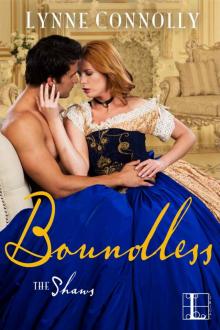 Boundless (The Shaws)
Boundless (The Shaws)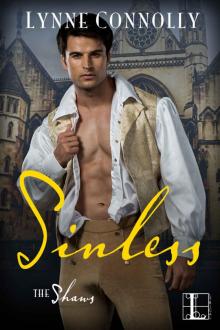 Sinless (The Shaws)
Sinless (The Shaws) The Girl with the Pearl Pin
The Girl with the Pearl Pin Hosts to Ghosts Box Set
Hosts to Ghosts Box Set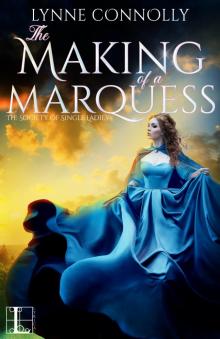 The Making of a Marquess
The Making of a Marquess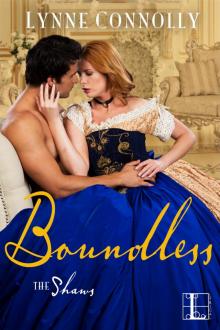 Boundless
Boundless Beauty of Sunset
Beauty of Sunset Virginia And The Wolf
Virginia And The Wolf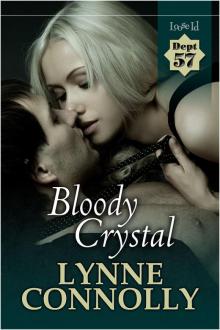 Department 57: Bloody Crystal
Department 57: Bloody Crystal Temptation Has Green Eyes
Temptation Has Green Eyes Forged by Love: Even Gods Fall in Love, Book 4
Forged by Love: Even Gods Fall in Love, Book 4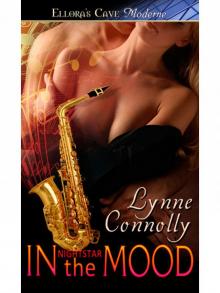 IntheMood
IntheMood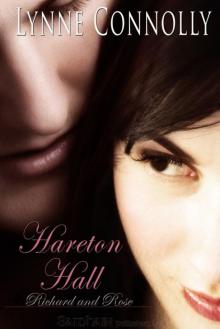 Hareton Hall: Richard and Rose, Book 6
Hareton Hall: Richard and Rose, Book 6 ShiftingHeat
ShiftingHeat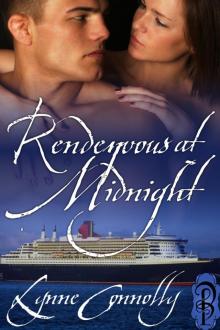 Rendezvous at Midnight
Rendezvous at Midnight Yorkshire: Richard and Rose, Book 1
Yorkshire: Richard and Rose, Book 1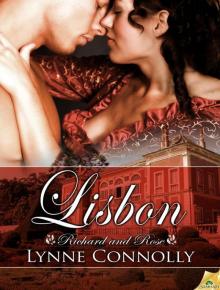 Lisbon: Richard and Rose, Book 8
Lisbon: Richard and Rose, Book 8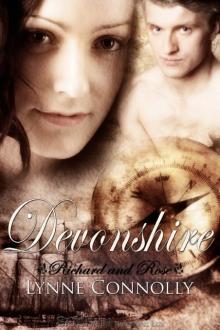 Devonshire: Richard and Rose, Book 2
Devonshire: Richard and Rose, Book 2 Venice
Venice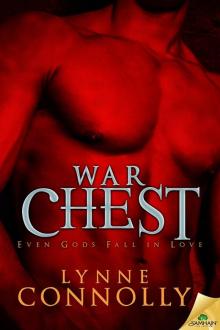 War Chest: Even Gods Fall in Love, Book 5
War Chest: Even Gods Fall in Love, Book 5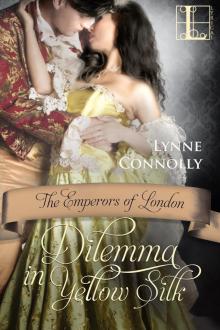 Dilemma in Yellow Silk (Emperors of London)
Dilemma in Yellow Silk (Emperors of London)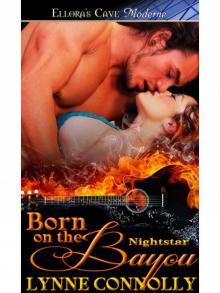 BornontheBayou
BornontheBayou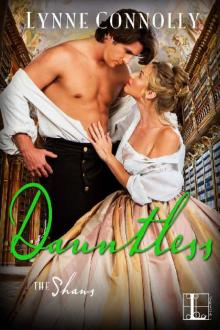 Dauntless (The Shaws)
Dauntless (The Shaws)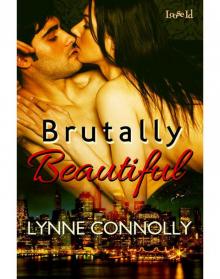 Brutally Beautiful
Brutally Beautiful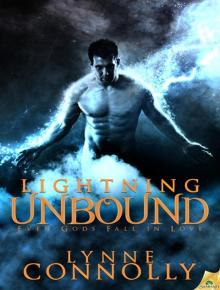 Lightning Unbound: Even Gods Fall in Love, Book 1
Lightning Unbound: Even Gods Fall in Love, Book 1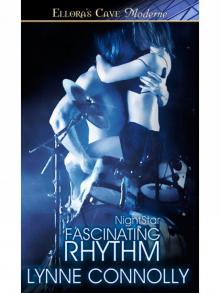 FascinatingRhythm
FascinatingRhythm Fearless
Fearless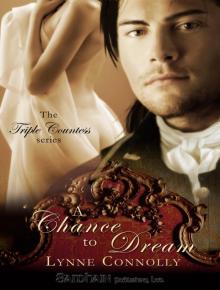 A Chance to Dream
A Chance to Dream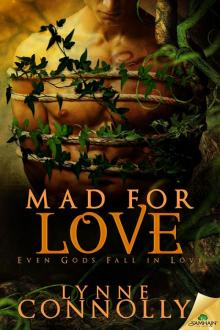 Mad for Love: Even Gods Fall in Love, Book 2
Mad for Love: Even Gods Fall in Love, Book 2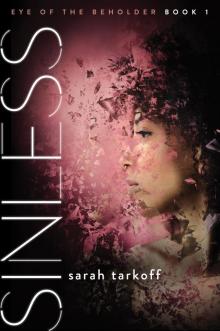 Sinless
Sinless SailtotheMoon
SailtotheMoon Wild Lavender
Wild Lavender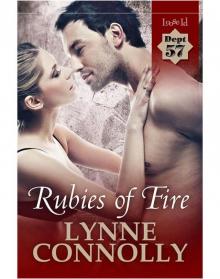 Department 57: Rubies of Fire
Department 57: Rubies of Fire Maiden Lane
Maiden Lane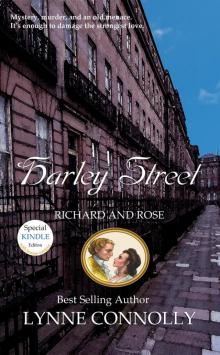 Harley Street
Harley Street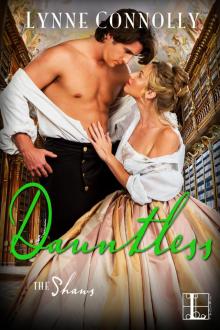 Dauntless
Dauntless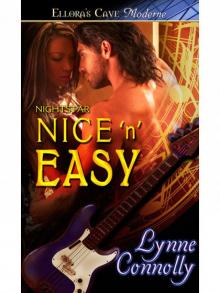 NicenEasy
NicenEasy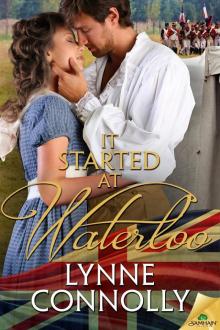 It Started at Waterloo
It Started at Waterloo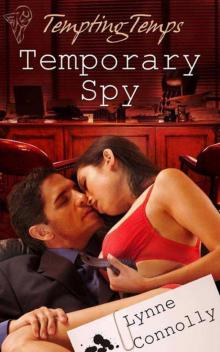 Temporary Spy
Temporary Spy BorntobeWild
BorntobeWild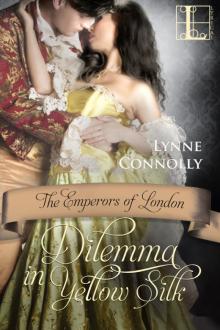 Dilemma in Yellow Silk
Dilemma in Yellow Silk Yorkshire
Yorkshire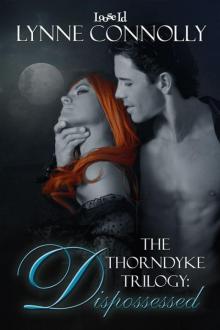 The Thorndykes 1: Dispossessed
The Thorndykes 1: Dispossessed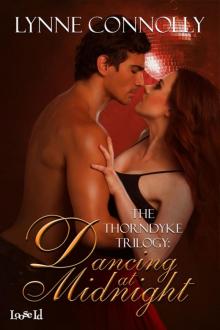 The Thorndyke Trilogy 2: Dancing at Midnight
The Thorndyke Trilogy 2: Dancing at Midnight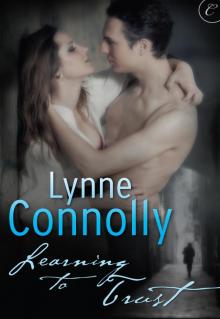 Learning to Trust
Learning to Trust Her Quicksilver Lover: Even Gods Fall in Love, Book 6
Her Quicksilver Lover: Even Gods Fall in Love, Book 6 Loving Lucy
Loving Lucy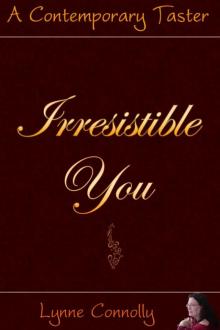 Irresistible You
Irresistible You Arrows of Desire: Even Gods Fall in Love, Book 3
Arrows of Desire: Even Gods Fall in Love, Book 3 Unbroken
Unbroken Devonshire
Devonshire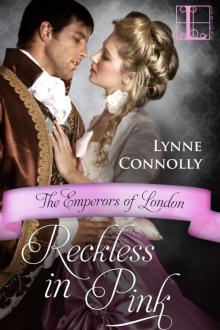 Reckless in Pink
Reckless in Pink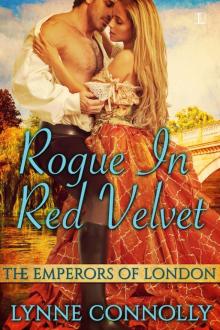 Rogue in Red Velvet
Rogue in Red Velvet